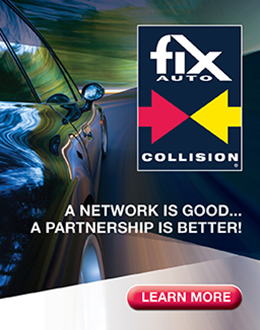By CRM staff
Toronto, Ontario — November 16, 2018 — There has been talk of self-driving cars for many years now, and speculation on how autonomous vehicles might change cities, parking and society as a whole. It is evident that over the past year we have seen some of the biggest OEMs announce plans to release their form of self-driving vehicles.
It is important to note that there are five levels of autonomy, zero being no autonomy at all and five translating to fully autonomous. None of these OEMs have been able to master fully autonomous as of yet, but that doesn’t mean it’s not coming.
The news broke this week that Ford Motors is planning on having their self-driving vehicles on the road by 2021. “Self-driving vehicles are simply an enabler for a new kind of business we’re building at Ford. We are already designing, testing and operating an ecosystem of services today that is required for our self-driving business in the future,” said Sherif Marakby, CEO of Ford Autonomous Vehicles LLC.
But Ford isn’t the only one promising to have autonomous vehicles on the road within the next couple of years. To recap, Collision Repair has broken down what is expected from some of the biggest automakers in the next few years.
Tesla
One OEM that is ahead of the game is Telsa. CEO Elon Musk has said he is confident that Tesla will achieve self-driving vehicles within the next year. Tesla’s autopilot software contributes to autonomy. The newest version has eight surrounding camerasto provide 360 degrees of visibility around the car at up to 250 meters of range. Twelve updated ultrasonic sensors help the “vision” of the vehicle to detect both hard and soft objects at nearly twice the distance of the prior system. A forward-facing radar with enhanced processing provides additional data about the world on a redundant wavelength that is able to see through heavy rain, fog, dust and even the car ahead.
Musk pointed out that the difficulty in creating a fully autonomous vehicle for all around the world is creating a “generalized solution” to the software that will obtain information about every road sign and differing traffic behavior. According to Musk, “No one has a good generalized solution yet.”
BMW
BMW already has levels one and two of autonomy in their vehicles but has yet to come out with anything further. However, they did announce that BMW research vehicles have been testing highly automated driving on public roads for several years now, and they have announced their goal to reach a level three autonomous stage by 2021. With level three the car will be able to drive autonomously over long distances in certain traffic situations, like highways, but the driver still has to take control of the vehicle within a few seconds for situations such as road construction sites.
Hyundai
This manufacturer is partnering up with Aurora, a leader in autonomous vehicle technology, and planning to release level-four autonomous vehicles in selected markets by 2021. They also plan to have fully autonomous vehicles on the road by 2030.
General Motors (GM)
GM recently announced their support for a national zero emissions plan to start placing millions of electric vehicles on the road by 2030. Alongside this zero-emissions plan they have also announced a plan for self-driving vehicles; these will also be completely electric. “Imagine widespread use of electric-only vehicles, reducing vehicle emissions. Our self-driving vehicles will all be electric, contributing to a better environment,” GM stated on their site. The car-making company has also invested billions into building an autonomous vehicle with carmaker Cruise, and Honda.
Nissan
An autonomous future for this car-maker is coming in 2020. Working alongside researchers from the world’s top universities, including MIT, Stanford, Oxford, and the University of Tokyo, Nissan says it has put more than 80 combined years of research into the development of autonomous drive technology. Their stages of autonomy are laid out in four sectors : single lane highway, multi-lane highway, city driving and fully autonomous driverless. It is unclear what level of autonomy will be available in the next couple of years, but maybe it’s safe to say it won’t be at a level four just yet.
Toyota
This past July, Toyota announced an investment of $500 million dollars with Uber to expand their development of self-driving vehicles. With the unfortunate accident of a self-driving Uber running over a pedestrian in California, the car-service company decided it would be a valuable to team up with Toyota and put the automaker’s Guardian technology to use. This technology offers some automated features, such as lane keeping, but the vehicle isn’t entirely self-driven.





































